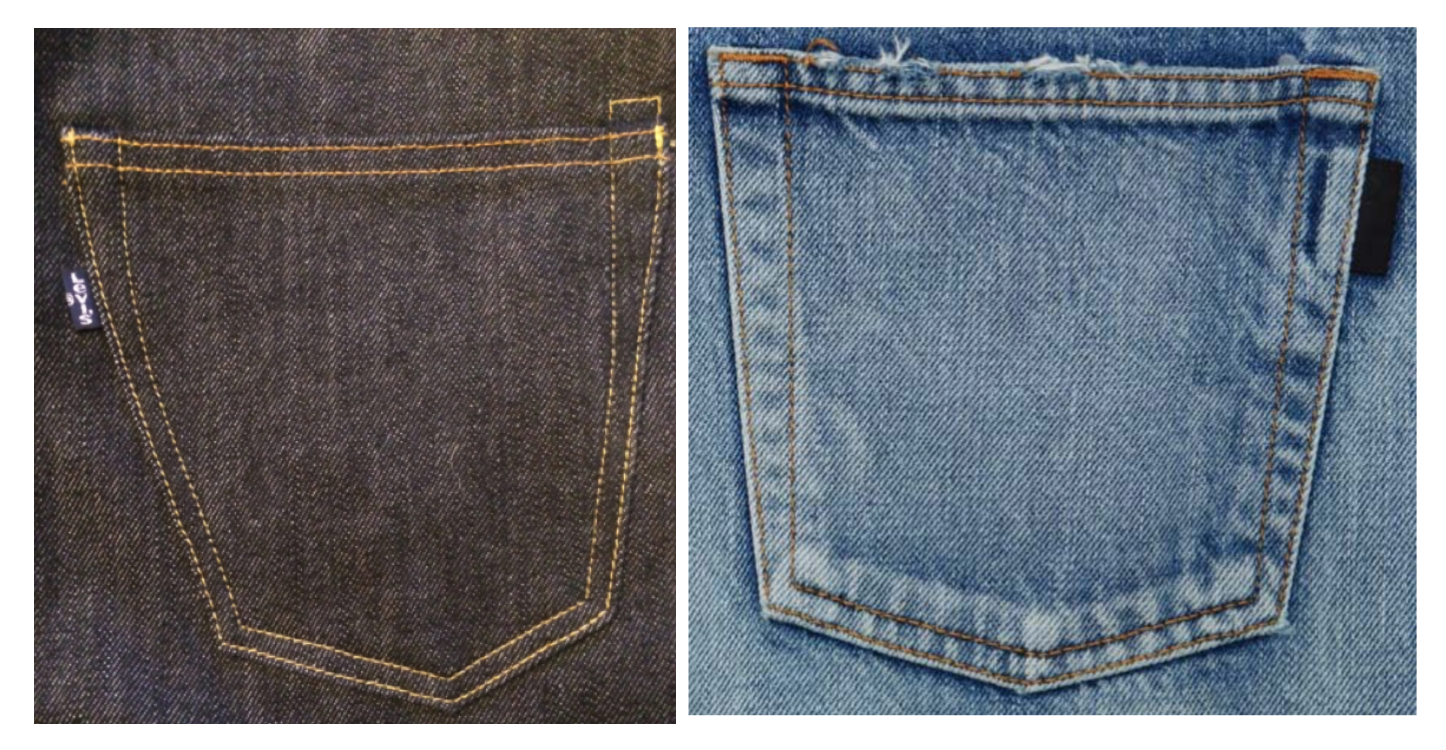Levi’s and Saint Laurent have made peace in their fight over the high fashion brand’s use of an little black pocket tab on a collection of expensive jeans, one that the American denim giant claimed was a bit too much like its own famous pocket tab, which it has used in an array of colors since in 1936 in order to provide “sight identification of its products in a crowded denim market.” By using a lookalike pocket tab of its own, Saint Laurent was inching a bit too close to Levi’s turf, the brand asserted.
Levi’s alleges in the trademark infringement, dilution, and unfair competition suit that it lodged against Saint Laurent in a California federal court in November that it maintains an arsenal of trademark registrations for the various tabs it uses on its jeans, and by putting similar tabs on its own much-pricier pants, YSL is “likely to confuse consumers about the source of [its] products and/or [whether there is] a relationship between YSL and Levi’s,” including potentially, a collaboration.
The denim giant’s argument about potential consumer confusion – which is at the center of a trademark infringement claim – is not without legs. Not only have collaborations infiltrated the fashion industry, but San Francisco-based Levi’s has, itself, partnered with a handful of brands in recent years, ranging from an ongoing deal with Paris-based Vetements and collabs with “it” streetwear brand Supreme, Virgil Abloh’s Off-White to the very-recently launched link-up with stylist Christine Centenera’s hot young label Wardrobe.nyc.
As such and given the industry’s enduring penchant for collaboration, Levi’s argued in its complaint that when consumers see Saint Laurent’s jeans with the strategically placed pocket tabs, there is an increased likeliness that they are either Levi’s pants or that the two brands worked together to create the pants. With that in mind, it asked the court to put a halt to Saint Laurent’s alleged infringement, which it claims was “aggravated by … willfulness, wantonness, malice, and conscious indifference to the rights and welfare of [Levi’s].”
 Levi’s pocket tab (left) & YSL’s pocket tab (right)
Levi’s pocket tab (left) & YSL’s pocket tab (right)
YSL responded to Levi’s complaint with a handful of defenses, asserting that – among other things – “consumers regularly encounter decorative pocket ornaments sold by a large number of third party users,” such as DKNY, Stussy, Carhartt, and Paul Smith, “all of [which] are apparently able to coexist with Levi Strauss’ tab trademark in the marketplace.”
It also claimed that due to the price points at play for its jeans, between “$550 and $2,590 per pair,” versus Levi’s, whose “jeans bearing the tab trademark can be found for under $20,” and YSL’s use of “clear markings featuring the Saint Laurent trademarks” on its wares, “consumers immediately recognize the Saint Laurent Jeans as originating from Saint Laurent,” and are not likely to be confused.
The fashion brand also put forth a few claims of its own, all of which were declaratory judgments, or requests that the court declare that it is not infringing or diluting Levi’s pocket tab trademark or engaging in unfair competition.
Now, the two brands appear to have settled their differences out of court, pursuant to a settlement agreement, as first reported by WIPR. While the terms of their agreement remain confidential, the court has formally acted on Levi’s request that the case be dismissed without prejudice, which leaves the door open for Levi’s to file suit against Saint Laurent on the same basis at a later date, such as if/when Saint Laurent fails to uphold its end of the settlement bargain.
And that certainly isn’t an unheard of move; just last month Bulgari filed suit against Kenneth Jay Lane, accusing the costume jewelry company of running afoul of their settlement agreement by selling an allegedly infringing version of the LVMH-owned jewelry company’s patent-protected Serpenti ring.
*The case is Levi Strauss & Co. v. Yves Saint Laurent America, Inc.3:18-cv-06977 (N.D.Cal.).











